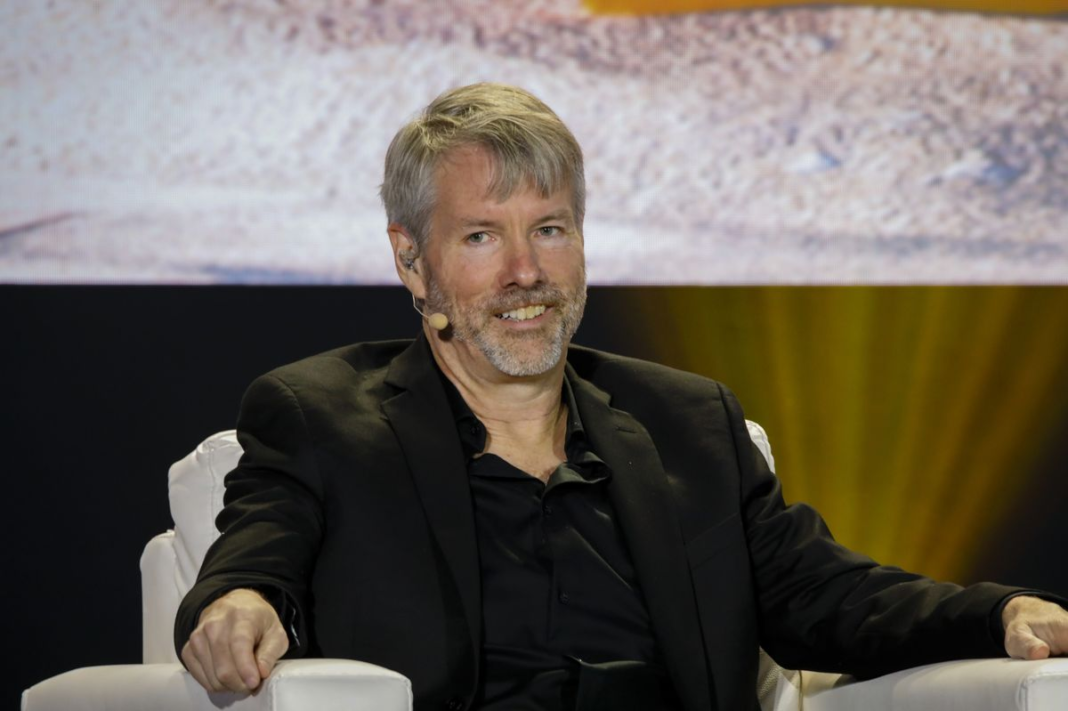The CEO of MicroStrategy stated that ETH is a security since it was created through an ICO and because its network has undergone numerous significant changes over time.
Michael Saylor, CEO of MicroStrategy and a supporter of Bitcoin (BTC), reiterated his claim that BTC is the only commodity in the cryptocurrency market by stating that Ether (ETH) is “clearly” a security.
United States Senators like Kirsten Gillibrand and Cynthia Lummis, representatives from the Securities and Exchange Commission (SEC) and the Commodities Futures Trading Commission (CFTC), questioned Saylor in an interview with Altcoin Daily about his opinion on the classification of both BTC and ETH as commodities.
Saylor gave a thorough explanation of what he saw to be the key distinctions between the Bitcoin and Ethereum networks, asserting that only the former has stayed constant throughout time:
“I think Ethereum is a security, I think it’s pretty obvious, […] it was issued by an ICO, theres a management team, there was a pre-mine, there’s a hard fork, there’s continual hard forks, there’s a difficulty bomb that keeps getting pushed back.”
The CEO said that ETH is a security because it requires ongoing software upgrades on a network that a group or other organization controls. He gave the long-delayed difficulty bomb’s design, which he claimed will “kill” the whole ETH mining business, as an illustration of this.
Michael Saylor: “Bitcoin is a Commodity”
Saylor asserts that a digital asset must be supported by a “fully decentralized protocol where nobody can modify it even if they wanted to change” to qualify as a commodity.
“For it to be a commodity, there can’t be an issuer, and the truth is you can’t make decisions. I mean, one of the fundamental insights in the crypto industry is that the fact that you can change it is what makes it a security,” he continued.
Generally, securities are fungible, tradeable financial products employed in public and private markets to raise capital. whereas commodities are viewed as items or assets with a financial utility. Hard commodities are assets like gold and silver, whereas soft commodities are products like rice or tea.
As the central component of the Bitcoin network cannot be changed, similar to the physical characteristics of gold, Saylor emphasized that BTC is a commodity:
“If you want to establish yourself as a digital commodity, then you’re trying to create something like gold in cyberspace.”
Saylor may have his points, but the Bitcoin network has undergone numerous enhancements. The most prominent one in recent memory was the November 2021 Taproot soft fork, which sought to enhance Bitcoin’s anonymity and scripting capabilities.
His Thoughts on Altcoins Like Cardano
When asked about his opinions on other cryptocurrencies like Cardano (ADA), Saylor reiterated his maximalist views and said:
“I think all of the proof-of-stake networks are securities, and they’re all very risky […] it’s above my pay grade, the regulators will decide whether or not they allow them to continue or not they don’t allow them to continue.”
The MicroStrategy continued by stating that he has reservations about altcoins being legislated out of existence due to being non-compliant security tokens, which is one of the main reasons he prefers BTC over all other crypto assets.
Despite the asset’s falling value in 2022, Saylor’s MicroStrategy has kept buying bitcoin, and as of June 29, the company has 129,699 bitcoin valued at about $3.98 billion.
Disclaimer: Cardano Feed is a Decentralized News Aggregator that enables journalists, influencers, editors, publishers, websites and community members to share news about the Cardano Ecosystem. User must always do their own research and none of those articles are financial advices. The content is for informational purposes only and does not necessarily reflect our opinion.






